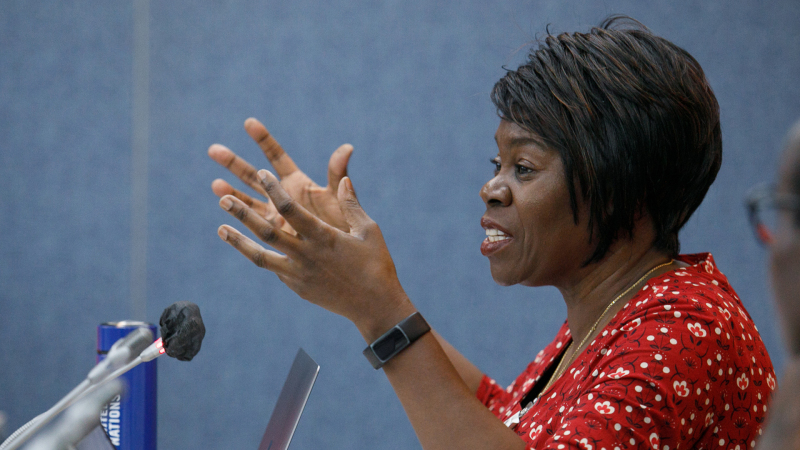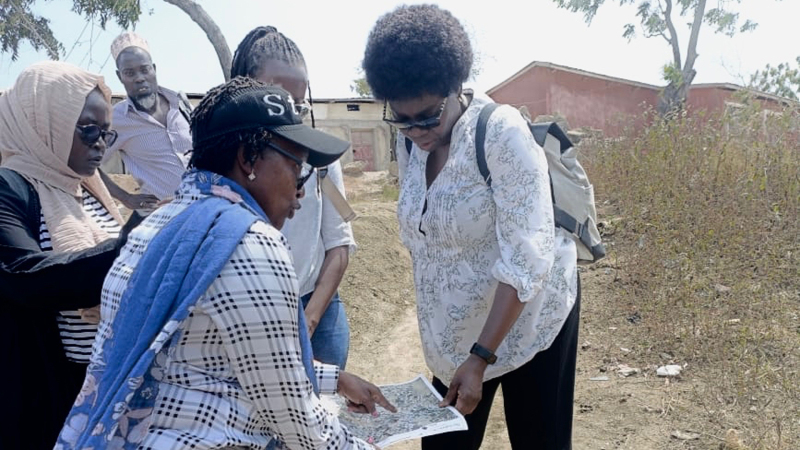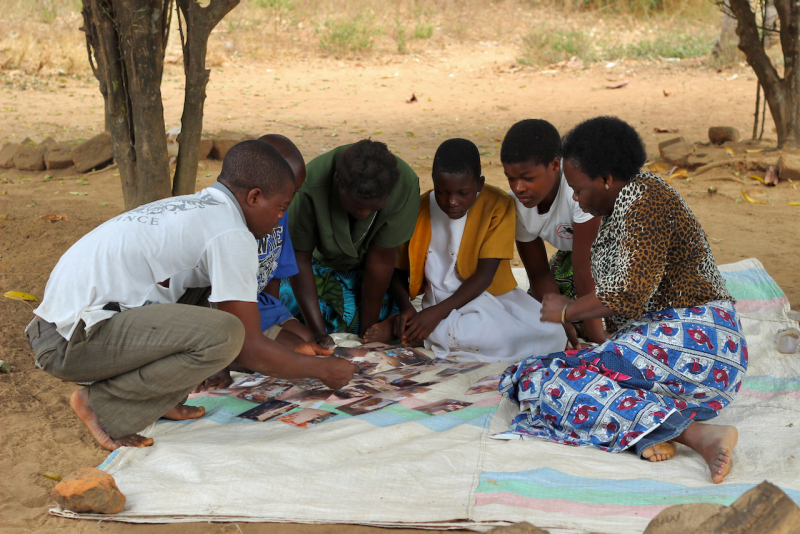Pregnant women who live in Kenya’s degraded areas, including slums, often receive poor or delayed health care and may die during childbirth. Malawian demographer Nyovani Janet Madise is committed to improving their conditions, and for her advocacy for these women to African governments, including raising awareness, she has received the 2023 TWAS-Fayzah M. Al-Kharafi Award.

"I'm humbled and honoured for this recognition, which comes without expectations on my side. This award is like the icing on the cake because getting governments to act is a prize in itself," she said. "I hope that this award makes policymakers aware of pregnant women’s situations that are not acceptable anymore."
The TWAS-Fayzah M. Al-Kharafi Award is an annual prize launched in 2016. It is named after TWAS Fellow Fayzah M. Al-Kharafi, a distinguished Kuwaiti academic renowned for her contribution to science education, research and training. The award acknowledges female scientists from TWAS-identified science and technology-lagging countries who have been living and working there for at least two years before their nomination.
Madise, who is the director of development policy and head of the Malawi Office of the African Institute for Development Policy, is the first ever Malawian to receive this award.
From 2004–2007, she worked as a senior research scientist at the African Population and Health Research Center in Kenya, in charge of programmes in education, maternal and child health, and population. During those years, she proved the high burden of maternal mortality in Nairobi slums and the challenges that pregnant women face in seeking maternity care.
Delivering in Kenyan slums
Slums are commonly sites of severe health crises. They are informal urban settlements lacking water, electricity, and hygienic standards, where open spaces and plastic bags used as 'flying toilets' are commonly used to defecate. According to a UN-HABITAT report, 60 to 80% of Kenya’s urban population lives in slums, where as little as 22% of houses have water connections.

"This is where women deliver their children, and where they die of infections, post-abortion complications, and post-delivery bleeding," Madise said. "When they are lucky, pregnant women go to a hospital facility, but often they must wait for their husbands to give permission since husbands have the money for transport and supplies. This wastes precious time because, on average, slums are located within 5–10 kilometres from the city centre where most facilities are based."
If women cannot afford the costs, they rely on the support of other female neighbours to assist in childbirth. "But women in the slums are not qualified for emergency situations," added Madise.
Indeed, maternal mortality in sub-Saharan Africa remains a challenge, with an average of 531 deaths every 100,000 live births in 2020, and even higher peaks in South Sudan, Chad, and Nigeria.
According to the well-established 'three-delay model', three kinds of delay cause maternal and perinatal deaths. There are delays in making the decision to seek care, delays in reaching an appropriate obstetric facility, and delays in receiving adequate care once at the facility.
Across three decades, Madise has addressed all three kinds of situations, urging many governments to improve the quality of the existing maternity health facilities, and reviewing their policies on gender equality.
She has given technical support to the governments of Botswana, Kenya, Malawi, the Netherlands, Nigeria, Norway, and the United Kingdom. Her research also aims to empower girls and women with education about sexual and reproductive health, nutrition, and food security.
Madise's efforts in Kenya led to success. The results of her survey prompted the District Health Medical Officer of Kasarani District in Nairobi to ask the government to construct maternity health centres for the women in that area.

Education and empowerment
When Madise tries to explain the importance of family planning, most of the times she is asked in response: "Who are you to tell me how many children I should have?"
Fertility rates, in fact, are high and some pregnancies are not planned. Among adolescents and unmarried women, unplanned pregnancies may lead to abortion, a life-threatening procedure when practiced by non-health care professionals. Otherwise, pregnancies proceed until the end, often without medical supervision.
The low status of women is another factor that contributes to pregnancies, Madise explained. "This is why we must offer access to contraception, and endow girls with the awareness they need to be able to choose the number of births that they want to have."
Surveying the conditions of Kenyan emergency care units, preparing recommendations for policymakers, and supporting them in making informed interventions are just a small part of Madise's commitment. She also gives women advice on maternal issues, disseminates knowledge about adolescents' sexual and reproductive health, and advice against harmful practices such as child marriages, female genital mutilation, and gender-based violence.
"It's easy to give up when you are in a male-dominated environment," she said. "This is why I commit myself to help African women and adolescents learn more about their rights and options. For what is in our hands, we all should grant a better future to the next generation."
Cristina Serra

